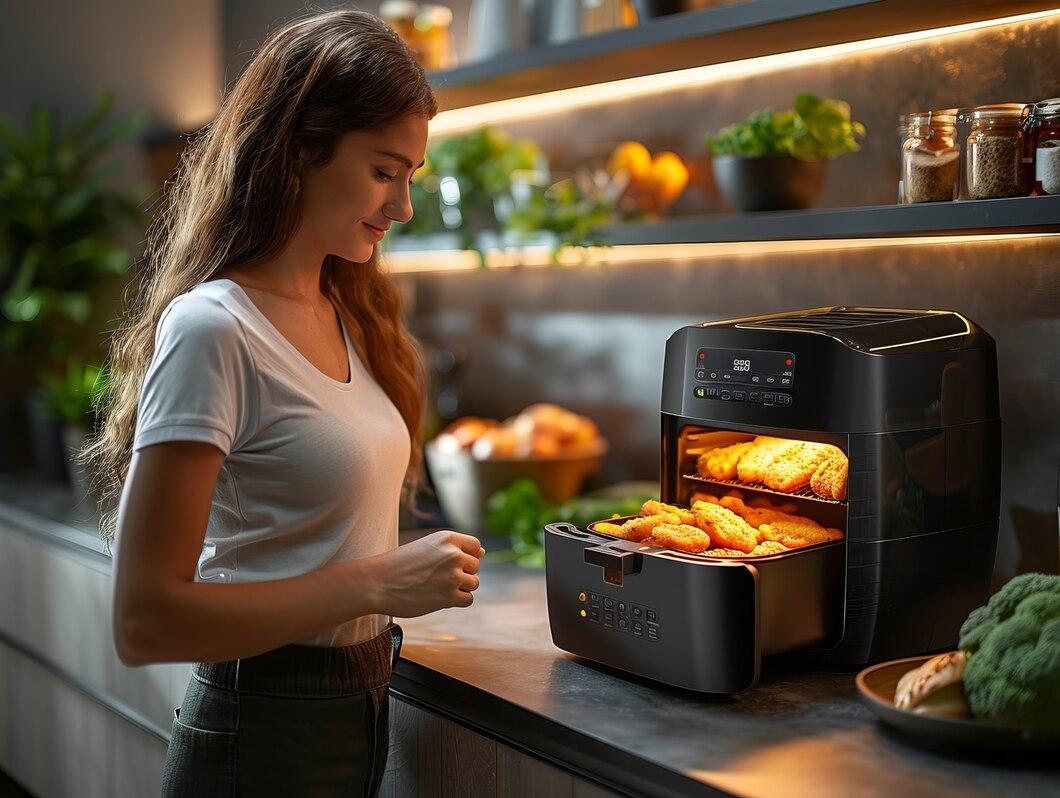We’ve all had those hectic days where the thought of cooking feels overwhelming. Juggling work, family, and personal time can make meal prep seem like a daunting task. But here’s the thing: with a few smart strategies and a little organization, cooking doesn’t have to take hours out of your day. You can make your kitchen more efficient and spend less time in front of the stove, without sacrificing delicious meals.
From keeping your kitchen organized to making sure your oven is clean and ready to go, there are simple ways to save time. Let’s explore some of these strategies and how they can make a real difference in your daily cooking routine.
Organizing Your Kitchen for Efficiency
A well-organized kitchen is like having an extra set of hands. When everything has its place and your workflow is smooth, you naturally save time. Here’s how you can optimize your kitchen layout and make meal prep a breeze.
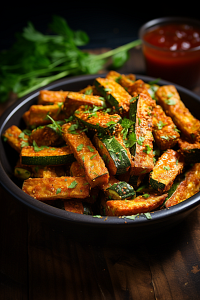
Kitchen Layout Optimization
The way your kitchen is laid out can have a surprising impact on how efficiently you cook. You don’t need to remodel the entire space; small tweaks can make a big difference. For example, keep your frequently used items—like knives, cutting boards, and pots—within easy reach. Storing spices, oils, and utensils near the stove can also cut down on unnecessary trips back and forth.
Some people like to follow the “kitchen triangle” rule, which means your stove, sink, and refrigerator are placed in a triangular shape, making movement between these key areas quick and easy. Even if your kitchen doesn’t follow this exact rule, you can still arrange items logically to create a smooth workflow.
Prepping Ingredients in Advance
Meal prep isn’t just a trend; it’s a real time-saver, especially if you’re cooking for a family. Chopping vegetables, marinating meats, or even measuring out spices ahead of time can make a huge difference when it’s time to cook. You’ll find that having everything ready to go allows you to jump into meal-making with far less stress.
You don’t have to prepare an entire week’s worth of food if that feels overwhelming. Instead, start small by prepping a few ingredients for the next day or two. For instance, you can chop onions, carrots, and celery (a classic combination for many dishes) and store them in the fridge to toss into recipes when needed.
Using Time-Saving Tools
Investing in a few kitchen gadgets can really speed up your cooking process. Tools like a food processor, an immersion blender, or even a slow cooker can save you minutes or even hours each week. The food processor can handle tedious chopping tasks, while a slow cooker allows you to “set it and forget it,” making dinner while you’re working or out running errands.
There’s no need to go overboard with appliances, but choosing the right tools for your cooking style can make a big difference. Even something simple like a high-quality knife that chops faster and smoother than a dull one can save you time in the kitchen.
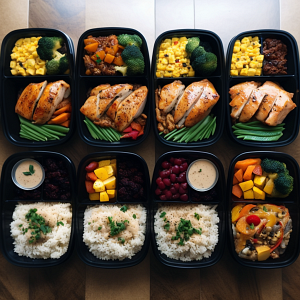
Batch Cooking and Freezing Meals
Another favorite strategy for saving time is batch cooking. Instead of preparing a new meal every single day, why not cook in larger quantities and store the extra for later? Batch cooking is a lifesaver for busy weeknights, and with the right storage, you’ll always have something ready to heat and eat.
Benefits of Batch Cooking
Batch cooking is all about efficiency. When you cook in bulk, you’re not only saving time on meal prep but also on clean-up. Preparing a big pot of chili or a casserole in one go means fewer dishes, less chopping, and less time spent in the kitchen over the course of a week. Plus, it’s great for reducing food waste because you can use ingredients more fully and freeze portions before they spoil.
Batch cooking can also help you eat healthier because you’ll have homemade meals on hand rather than reaching for takeout or processed foods when you’re short on time.
Freezer-Friendly Recipes
When you’ve got freezer-friendly meals ready to go, all you need to do is thaw and reheat. Dishes like soups, stews, lasagna, and even breakfast burritos hold up well in the freezer. Label your meals with the date and contents so you can easily keep track of what’s ready to eat.
The trick to successful freezing is proper packaging. Use airtight containers or freezer bags to prevent freezer burn, and try to remove as much air as possible before sealing. It can also help to portion meals into smaller containers so that you only defrost what you need.
Efficient Use of Leftovers
Leftovers don’t have to be boring. With a little creativity, they can turn into entirely new meals. For instance, leftover roasted chicken can be shredded and added to a salad, made into tacos, or turned into a comforting soup. Repurposing leftovers not only saves you cooking time but also helps you avoid wasting food.
If you have leftover veggies, throw them into an omelet or a stir-fry the next day. By thinking of leftovers as ingredients rather than just reheated meals, you open up a lot of quick-cooking possibilities.
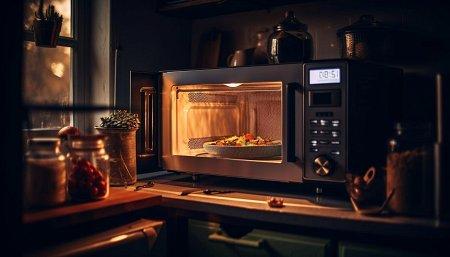
How Regular Oven Cleaning Can Make Meal Prep Faster
You might not immediately think of oven cleaning as a time-saving hack, but trust me—it is. A dirty oven can actually slow down your cooking, making meal prep take longer than necessary. Let’s dive into how keeping your oven clean can help speed things up in the kitchen.
The Impact of a Clean Oven on Cooking Efficiency
When your oven is filled with grime and grease, it doesn’t work as efficiently. All that gunk can block heat from circulating properly, leading to uneven cooking. If you’ve ever baked something and noticed it was raw in the middle but burnt on top, your oven’s cleanliness might be the culprit.
A clean oven, on the other hand, allows for better heat distribution, so your food cooks faster and more evenly. This means you won’t have to keep checking and rotating dishes or adding extra time to the cooking process.
Faster Preheating with a Clean Oven
A dirty oven can also take longer to preheat, especially if food residue has built up around the heating elements. Those crumbs and spills can absorb some of the heat, making the oven take more time to reach the correct temperature. If you’re like most people, you probably find preheating the oven annoying as it is—so why make it take any longer than it needs to?
By regularly cleaning your oven, you’ll ensure it preheats quickly and stays at the temperature you set, saving precious time when you’re in a rush to get dinner on the table.
Improving Heat Distribution
Another perk of a clean oven is better heat distribution. When the interior is free of grease and burnt food particles, the oven can maintain a consistent temperature throughout the cooking process. This is especially important for baking, where even heat is crucial for achieving perfect results.
When your oven heats evenly, you won’t have to worry about certain parts of your dish being overcooked while others remain undercooked. Everything cooks faster and more predictably, meaning you can trust the recipe times and move on to your next task without babysitting the oven.
Time-Saving Oven Cleaning Tips
Cleaning your oven doesn’t have to be a huge chore. A quick wipe-down after each use can prevent buildup and make deep cleans easier. If you prefer natural cleaning methods, a paste made from baking soda and water can work wonders on baked-on grime, and a little vinegar spray helps lift grease.
For a speedier deep clean, consider hiring a professional cleaning service. Companies like Optima Cleaners specialize in oven cleaning and can handle the dirty work for you, leaving you more time to enjoy your home-cooked meals.
By keeping your oven clean and well-maintained, you’ll not only save time during meal prep but also ensure that your food cooks evenly and efficiently.
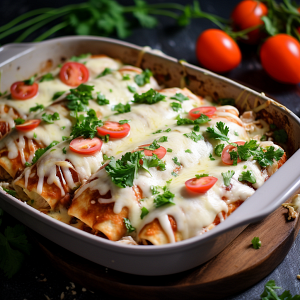
Maximizing Efficiency with Multi-Tasking
Cooking multiple dishes at once might sound like a juggling act, but it can actually be a huge time-saver if done right. Learning how to multi-task in the kitchen means you can prepare an entire meal in the same amount of time it takes to make just one dish, leaving you with extra minutes (or even hours) to relax or focus on other things.
Cook Multiple Dishes at Once
One of the easiest ways to save time in the kitchen is to fully use your oven and stovetop by cooking multiple dishes at once. If you’re already roasting vegetables, why not throw in a chicken or bake a dessert on the other rack? Many dishes cook at similar temperatures, and a clean, well-maintained oven ensures they’ll cook evenly without much fuss.
If you plan ahead, you can also coordinate dishes with different cooking times. For example, start roasting a piece of meat that takes an hour, then add a tray of veggies halfway through so everything finishes at the same time. This way, you’re not waiting for one thing to finish cooking before starting the next.
Cooking in batches this way allows you to prepare parts of your meals for the week, cutting down on daily cooking time. If you make a large tray of roasted vegetables, for instance, you can portion them out for lunch salads or side dishes throughout the week.
While You Wait: Use Downtime Effectively
Most recipes have at least some downtime—whether it’s waiting for the oven to preheat, water to boil, or meat to brown. Instead of standing by idly, use this time to tackle other small tasks. You could start prepping ingredients for your next meal, wash a few dishes, or set the table.
By taking advantage of these brief windows, you’ll cut down on the amount of post-cooking cleanup or prep work you have to do later. It may not seem like much at the moment, but those little pockets of time add up and can shave off significant minutes from your overall kitchen routine.
Streamlining Post-Cooking Cleanup
Once the cooking is done, the last thing you want is a mountain of dirty dishes waiting for you. Fortunately, streamlining the cleanup process can make this task less daunting. A few small habits can turn post-meal cleanup into a quick, manageable task instead of a dreaded chore.
Cleaning as You Cook
One of the simplest ways to save time on cleanup is to tidy up as you go. While your food is simmering or baking, take a moment to wash used utensils, cutting boards, and mixing bowls. By the time dinner is ready, you’ll find that most of the mess is already taken care of.
Another tip is to keep a bowl or trash can nearby while you prep food. This way, you can quickly discard scraps like vegetable peels and wrappers without making multiple trips to the trash can, keeping your workspace neat and organized.
Efficient Use of the Dishwasher and Sink
If you’re lucky enough to have a dishwasher, it can be a real time-saver when used properly. Load it as you go rather than piling everything up until the end of the meal. This helps prevent a cluttered kitchen and allows you to stay on top of the mess.
For those without dishwashers, soaking dishes while you eat can help soften any stubborn food residue, making the actual washing process much quicker afterward. Fill your sink with hot soapy water as soon as you’re done using a pan or pot, and let them soak while you enjoy your meal.
Conclusion
By organizing your kitchen, embracing batch cooking, and staying on top of maintenance tasks like oven cleaning, you’ll find that cooking becomes a lot less time-consuming. Little adjustments like keeping a clean oven or using your downtime wisely can have a big impact on your overall kitchen efficiency.
Cooking is something that can fit into even the busiest schedules when you adopt these time-saving strategies. You’ll not only save time but also reduce the stress of mealtime, allowing you to enjoy the process of preparing and sharing meals with loved ones. By keeping things simple and efficient, you can spend less time in the kitchen and more time doing the things you love.
